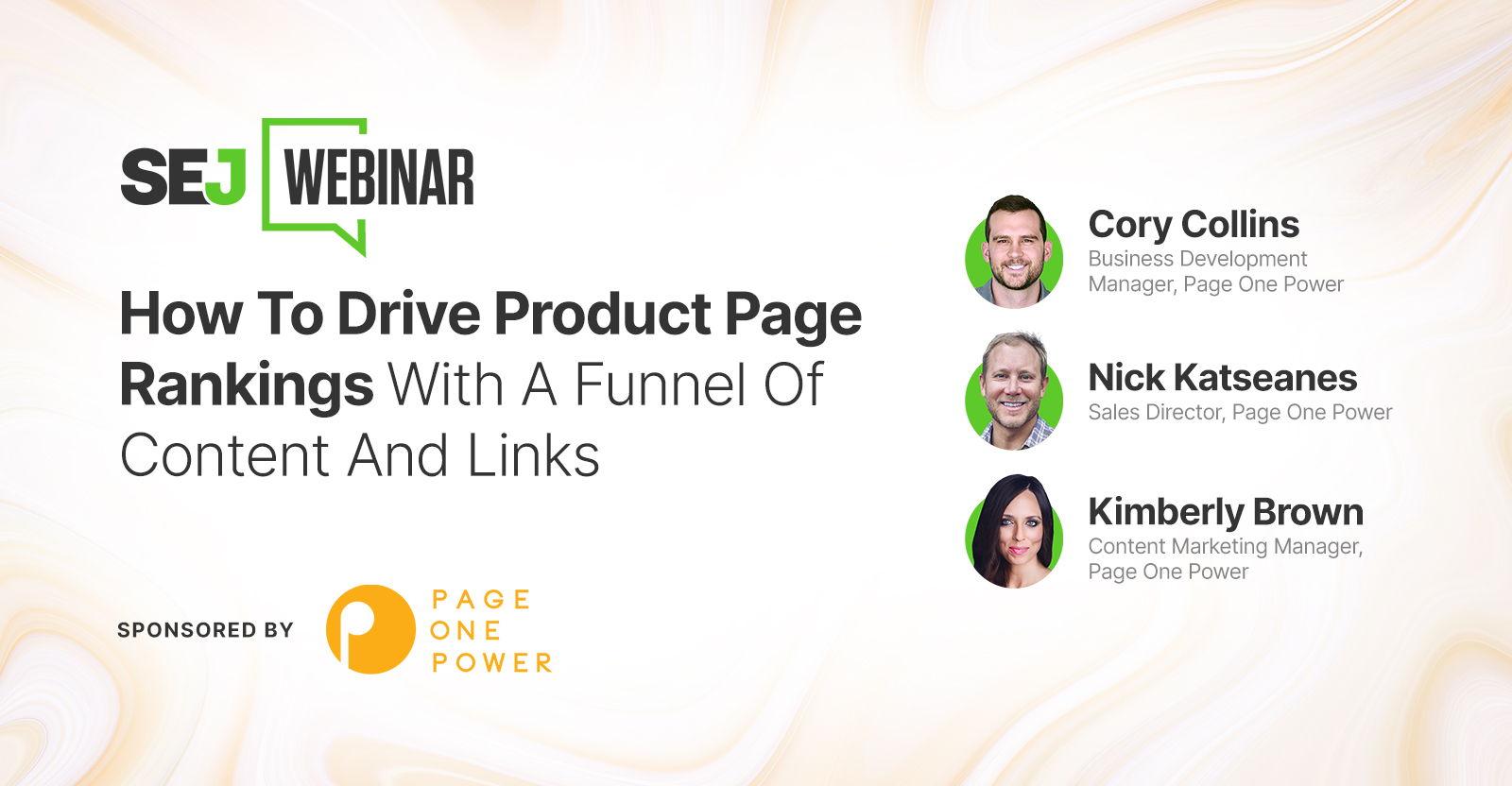SEO
How To Boost Key Product Page Rankings With Link Building

When shaping your SEO strategy, your success metrics come down to bottom-line results – what’s going to move the needle for your company and make a real impact?
Which SEO strategies can you employ to hit your KPIs?
In order to succeed in competitive markets, you must go beyond on-page optimization and sound technical SEO – you need a full-funnel approach.
With the right mix of link building and content creation, you can directly affect the rankings of key product pages while boosting overall performance.
6-Step Process For Boosting Product Page Ranks
To consistently boost your product page rankings, try adding these 6 steps to your SEO strategy:
- Review the product page(s) for link opportunities.
- Audit existing content and ensure topical relevance to the product page with strategic internal links.
- Identify high-intent keywords, a.k.a. your new content opportunity, for the product page.
- Discover linkable topics with a tie-in to the product page, but make sure they are broad and useful enough to not be advertorial.
- Create content based on findings, and build external links to the broader topic, with strategic internal links to the high-intent keyword content and product pages.
- Measure the impact on the primary product page against the keyword ranking KPIs initially identified. Monitor rankings, traffic, and links across the entire funnel as additional KPIs.
Don’t worry, we wouldn’t leave you hanging without more information.
Join our upcoming webinar to learn exactly how to do these steps.
Join Cory Collins, Business Development Manager at Page One Power, and Nick Katseanes, Sales Director at Page One Power, as they show you how a funnel of links and content can result in stronger SEO campaigns.
Learn how you, too, can combine link building and content creation to drive product page rankings in addition to secondary KPIs.
Key Takeaways:
- Learn how to grow product page rankings after technical SEO and on-page optimization are completed.
- Understand how content marketing and link building strategically tie back into product-level SEO KPIs.
- Gain insight into the difference between high-intent keyword content and linkable content, and how to use the two together.
Can’t make the live webinar? Sign up and we’ll send you the recording and all the resources after the event.



![How AEO Will Impact Your Business's Google Visibility in 2026 Why Your Small Business’s Google Visibility in 2026 Depends on AEO [Webinar]](https://articles.entireweb.com/wp-content/uploads/2026/01/How-AEO-Will-Impact-Your-Businesss-Google-Visibility-in-2026-400x240.png)
![How AEO Will Impact Your Business's Google Visibility in 2026 Why Your Small Business’s Google Visibility in 2026 Depends on AEO [Webinar]](https://articles.entireweb.com/wp-content/uploads/2026/01/How-AEO-Will-Impact-Your-Businesss-Google-Visibility-in-2026-80x80.png)













